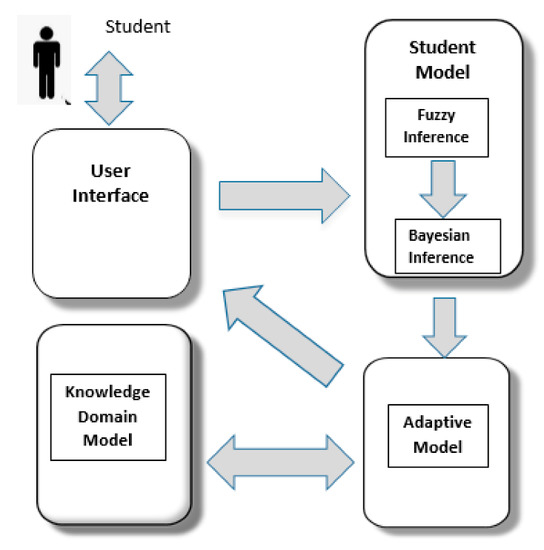Bioinformatics Tutor Can Be Fun For Anyone
Bioinformatics Tutor Can Be Fun For Anyone
Blog Article
Bioinformatics Tutor - The Facts
Table of ContentsThe 10-Second Trick For Bioinformatics TutorThe 8-Minute Rule for Bioinformatics TutorSome Known Details About Bioinformatics Tutor 5 Simple Techniques For Bioinformatics TutorThe Definitive Guide for Bioinformatics Tutor
Of the total participants involved in the training, 80% were pupils from public greater education and learning establishments, while the remaining 20% originated from personal organizations. To get a certification of engagement, pupils were needed to participate in a minimum of 90% of the total training hours. As an outcome of this need, an excellent 95% of the individuals efficiently gotten their certificates, having not just satisfied the minimum participation requirements but additionally finished all assigned activities throughout the training.
Throughout the elevation of the COVID-19 pandemic, particularly in between June and August 2020, the task group was entrusted with organizing specialized training in bioinformatics. This training was specifically aimed at students from the study group Center for Study in Applied Computing at the Federal University of Pará (UFRA) The adjustment to remote knowing systems due to the pandemic produced an opportunity to discover new mentor techniques and digital tools that boosted both reach and effectiveness.
To reply to the expanding need in the computer and life scientific researches areas, a sophisticated program was presented in 2020 labelled Intro to Maker Knowing. This course was created to offer an easily accessible yet thorough review of Artificial Intelligence methods, especially as applied in bioinformatics. The program was accomplished over three months, from October to December 2020, and was provided entirely online via the Google Meet system. This online layout allowed involvement from students throughout Brazil, most of whom might not have had the opportunity to participate in in-person sessions.
Bioinformatics Tutor Fundamentals Explained
About 50% of the total training hours were dedicated to useful activities where students developed intelligent designs and applications in a variety of scientific domains, consisting of genes, molecular biology, and ecological information evaluation. These systems enabled students to engage in real-time data manipulation, version training, and algorithm testing.
Sixty of them were affiliated with various greater education and learning organizations in the state of Pará, while the remaining twenty came from establishments situated in 5 various other Brazilian states. By introducing Artificial Knowledge in a pertinent and practical context, the campaign served to link the space between theory and real-world application, giving trainees with a strong foundation for future research or work in the field.
The training initiative developed component of a broader scholastic outreach effort referred to as the Bioinformatics when driving task. This job has, throughout the years, introduced lots of pupils to the world of bioinformatics and computational biology. The occasions held under this umbrella effort have taken place throughout numerous regions and years, as summed up in Table 1 (List of occasions, areas, years, and total varieties of pupils and trainers)
Among the most exceptional results of the Bioinformatics browse this site on the Road effort has actually been its contribution to the growth of decentralized research study groups. Numerous of these teams, initially united by their engagement in training occasions, have given that taken place to produce independent scientific research in cooperation with local academic establishments. The training not just fostered clinical thinking within the context of bioinformatics yet additionally sparked collaborative connections that prolonged past the training setting. These partnerships have actually led to enhanced regional scientific performance and added meaningfully to the development of the broader bioinformatics neighborhood in Brazil.
The 9-Minute Rule for Bioinformatics Tutor
The job itself was conceptualized and arranged by MB and RR, who looked after the preparation and implementation of each action. Lectures were delivered by a multidisciplinary group including megabytes, FA, EF, KP, JS, DM, SN, LP, LG, RR, ih, and air conditioner. The exact same team, leaving out IH and RR, additionally worked as tutors for the useful training components. Funding for the Discover More job was supplied through the give 88887.200562/ 2018-00 from CAPES. The authors prolong their appreciation to everybody that contributed to the understanding of this job, whether straight or indirectly, considering that its creation.
The Federal University of Pará's Workplace of Research (PROPESP/UFPA) likewise provided financial backing, especially for the production of the final manuscript. The authors proclaim no economic or industrial disputes of interest that can have affected the study. Moreover, all viewpoints and interpretations revealed in this write-up are solely those of the writers and do not always mirror those of their respective establishments, the author, editors, or reviewers entailed in the magazine process.

5 Simple Techniques For Bioinformatics Tutor
From a pedagogical perspective, the training strategy used in the training was intentionally interactive. Classes were performed in a fashion that urged trainee involvement and conversation, exceeding rote memorization to discover exactly how ideas are developed, used in day-to-day life, and checked in academic setups. The training approach concentrated on supporting both solid and battling pupils, supplying personalized support, and structure confidence through sustained mentorship and perseverance.

Each team, consisting of roughly 36 participants, was sustained by 3 coaches-- a lot of whom were postdoctoral researchers with specialized know-how. These coaches not see here now only helped make the team tasks however also promoted their implementation, guaranteeing that each research concern was both pertinent and properly challenging. The objective was to provide a naturally sensible context that participants might explore with open-ended objectives and accessibility to curated datasets.
For added insights right into the methodology and outcomes of this project-based knowing strategy, viewers are guided to S1 Text, that includes in-depth descriptions of the instructional structure, assessment strategies, and job themes utilized in the training sessions.
Little Known Facts About Bioinformatics Tutor.
Of the total participants included in the training, 80% were pupils from public higher education establishments, while the staying 20% came from personal establishments. To certify for a certificate of participation, pupils were required to attend at least 90% of the overall training hours. Significantly, past the students who signed up in the training sessions, 7 experienced trainers took part in providing the programs, while 3 dedicated research study teachers worked with the total training process. Roughly 50% of the total training hours were devoted to useful activities where students developed smart designs and applications in a variety of scientific domains, including genetics, molecular biology, and environmental information evaluation. The training not just promoted scientific thinking within the context of bioinformatics but also sparked collaborative relationships that expanded past the training environment.
Report this page